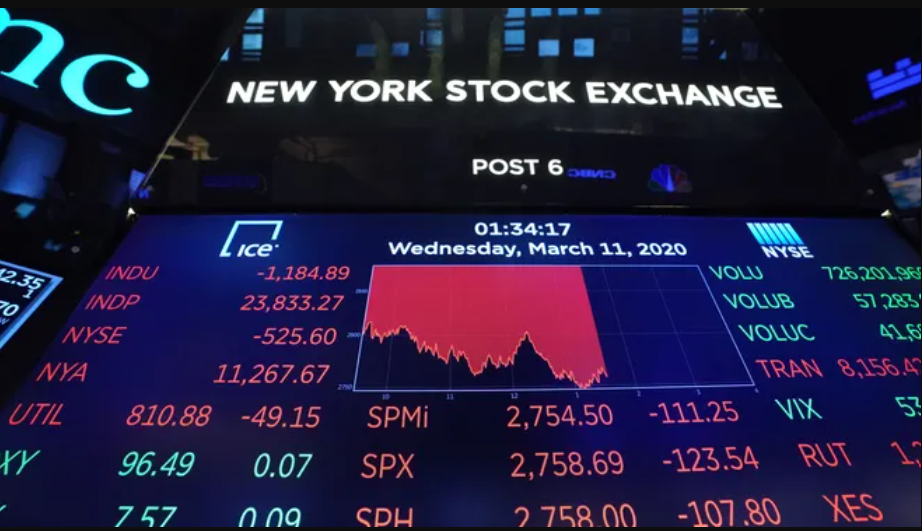Global stock markets experienced a significant plunge following the release of surprising US employment data. The data revealed a sharp increase in job losses, sending shockwaves through the financial world. Investors were caught off guard by the unexpected downturn in employment numbers, leading to a widespread sell-off in stocks across major markets. The news sparked fears of a potential economic slowdown and raised concerns about the stability of the global economy.
As a result, stock prices plummeted, wiping out billions of dollars in market value. The sudden and drastic decline in stock prices sent ripples through the financial markets, with investors scrambling to assess the potential impact on their portfolios. The uncertainty surrounding the future of the economy and the job market has created a sense of unease among investors, leading to increased volatility in the stock markets. The sharp drop in stock prices serves as a stark reminder of the fragility of the global economy and the interconnectedness of financial markets around the world. Investors are now closely monitoring the situation, hoping for signs of a turnaround in the near future.

US Jobs Report Triggers Worldwide Market Sell-Off
The recent US Jobs Report has sent shockwaves through global markets, triggering a widespread sell-off of stocks and commodities. The report revealed a significant decrease in job growth, causing concerns about the health of the US economy and its potential impact on the rest of the world. Investors reacted swiftly to the news, selling off their holdings in a panic as they feared a potential recession on the horizon. This sell-off quickly spread to markets across the globe, with stock exchanges in Europe and Asia also experiencing steep declines.
The uncertainty caused by the Jobs Report has led to increased volatility in the markets, with investors bracing for further turbulence in the coming days. Economists are closely monitoring the situation, trying to assess the potential implications of the report on the broader economy. The sell-off has also raised questions about the Federal Reserve’s next move, with some speculating that the central bank may need to intervene to stabilize the markets. Overall, the US Jobs Report has set off a chain reaction in the global economy, highlighting the interconnected nature of financial markets and the potential ripple effects of economic indicators. Investors and policymakers alike are now on high alert, closely watching how events unfold in the days ahead.
Investors React to Unexpected US Employment Figures
Investors were caught off guard by the unexpected US employment figures released last week. The data showed a significant decrease in job growth, sparking concern among market participants. Many investors had anticipated a stronger labor market, given the recent economic recovery and increasing vaccination rates. The disappointing numbers led to a sell-off in stocks and other risk assets, as investors feared the implications for future economic growth. Some analysts pointed to the ongoing labor shortages and supply chain disruptions as possible reasons for the weak job numbers.
Others raised concerns about the potential impact of rising inflation and interest rates on consumer spending and business investment. Overall, the unexpected employment figures have added a layer of uncertainty to the market outlook, with investors closely monitoring upcoming economic data releases for further clues about the state of the US economy. Despite the initial negative reaction, some investors see the dip in job growth as a temporary setback, and remain optimistic about the long-term prospects for stocks and other assets. As always, market participants are advised to stay informed and diversify their portfolios to mitigate the risks associated with unexpected economic developments.

Global Equities Tumble Following US Labor Market Shock
Global equities took a nosedive following an unexpected shock in the US labor market. The news of a significant decrease in job growth sent shockwaves through the financial world, leading to a sell-off in stocks across the board. Investors were caught off guard by the disappointing data, which raised concerns about the health of the US economy and its impact on the global market. As a result, major stock indices around the world experienced sharp declines, with many reaching their lowest levels in months.
The uncertainty surrounding the labor market coupled with fears of a potential economic slowdown led to a flight to safety, with investors flocking to bonds and other less risky assets. The sudden downturn in equities highlighted the interconnectedness of global markets and the ripple effects of events in one country on the rest of the world. As investors grappled with the implications of the labor market shock, analysts warned of further volatility in the coming days and weeks.
The situation served as a stark reminder of the fragility of financial markets and the importance of staying informed and adaptable in the face of unexpected developments. Despite the turmoil, some experts remained cautiously optimistic about the long-term prospects of equities, citing the resilience of the global economy and the potential for a rebound in the future. However, the road ahead is likely to be bumpy as investors navigate the uncertainties and risks inherent in the current economic environment.
Economic Uncertainty Rises as US Job Numbers Stun Analysts
The recent job numbers in the US have left many analysts stunned and uncertain about the state of the economy. While some had predicted modest growth in employment, the reality painted a much bleaker picture. The unexpected decrease in job numbers has raised concerns about the overall health of the economy and has sparked fears of a potential recession. This uncertainty has led to increased volatility in the stock market, as investors grapple with the implications of the disappointing job figures. The lackluster job growth has also fueled concerns about the ability of businesses to sustain their current levels of production and expansion, leading to worries about potential layoffs and downsizing in the near future.
Additionally, the unexpected downturn in job numbers has left many workers feeling insecure about their own job prospects and financial stability. As the economic uncertainty continues to rise, policymakers and business leaders will be forced to grapple with difficult decisions about how to stimulate growth and ensure the stability of the economy. In the meantime, the American public will have to navigate a landscape of increased uncertainty and potential financial hardship as they await further developments in the job market and broader economic trends.

Market Volatility Surges in Response to US Jobs Data
Market volatility surged in response to the latest US jobs data, leaving investors on edge. The unexpected rise in unemployment rates sent shockwaves through Wall Street, leading to a rapid sell-off of stocks and a spike in market uncertainty. Analysts were caught off guard by the disappointing numbers, which painted a bleak picture of the labor market’s recovery from the ongoing pandemic. As fears of a slow economic recovery grew, investors scrambled to adjust their portfolios in anticipation of further market turbulence. The sudden shift in market sentiment highlighted the fragile nature of the global economy and the impact that unexpected data can have on financial markets. With uncertainty looming, investors are bracing themselves for continued volatility as they navigate the uncertain economic landscape.
The surge in market volatility serves as a stark reminder of the interconnectedness of global financial markets and the importance of staying informed and adaptable in the face of sudden changes. As investors grapple with the implications of the latest jobs data, many are reconsidering their investment strategies and reevaluating their risk tolerance. The heightened uncertainty has also reignited concerns about the long-term impact of the pandemic on the economy and the potential for further disruptions in the months ahead. In times of increased volatility, investors are advised to remain vigilant and to carefully monitor market developments to make informed decisions.
Despite the challenges posed by the recent surge in market volatility, some investors see opportunities for growth and value in the midst of uncertainty. As market dynamics continue to evolve, savvy investors are looking for ways to capitalize on emerging trends and position themselves for success in the long term. By staying informed, maintaining a diversified portfolio, and remaining disciplined in their investment approach, investors can weather the storm of market volatility and emerge stronger on the other side.
